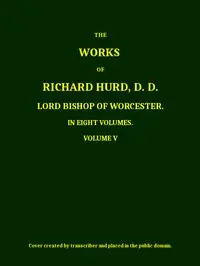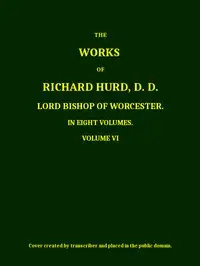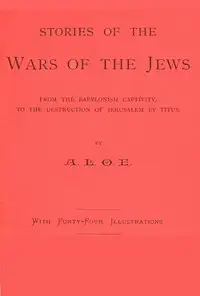"The Homilies of the Anglo-Saxon Church" by Abbot Ælfric of Eynsham is a collection of sermons from the 1000s that intends to educate regular people about the Christian faith. Presented with both the original old English and a new translation, the homilies begin with Ælfric explaining the purpose of making these sermons readable for the common person. Beginning with the story of creation, the sermons describe God and humanity's relationship with him, as well as detailing the tales of Adam and Eve. The collection reveals what Anglo-Saxon church leaders believed about morality, faith, and life after death.

The Homilies of the Anglo-Saxon Church Containing the Sermones Catholici, or Homilies of Ælfric, in the Original Anglo-Saxon, with an English Version. Volume I.
By Abbot of Eynsham Aelfric
Discover ancient religious beliefs and lessons as an abbot translates important sermons for regular people with an English version.
Genres
Released
2011-12-18
Formats
epub3 (images)
epub
mobi
mobi (images)
epub (images)
txt
Free Download
Summary
About the AuthorÆlfric of Eynsham was an English abbot and a student of Æthelwold of Winchester, and a consummate, prolific writer in Old English of hagiography, homilies, biblical commentaries, and other genres. He is also known variously as Ælfric the Grammarian, Ælfric of Cerne, and Ælfric the Homilist. In the view of Peter Hunter Blair, he was "a man comparable both in the quantity of his writings and in the quality of his mind even with Bede himself." According to Claudio Leonardi, he "represented the highest pinnacle of Benedictine reform and Anglo-Saxon literature".
Ælfric of Eynsham was an English abbot and a student of Æthelwold of Winchester, and a consummate, prolific writer in Old English of hagiography, homilies, biblical commentaries, and other genres. He is also known variously as Ælfric the Grammarian, Ælfric of Cerne, and Ælfric the Homilist. In the view of Peter Hunter Blair, he was "a man comparable both in the quantity of his writings and in the quality of his mind even with Bede himself." According to Claudio Leonardi, he "represented the highest pinnacle of Benedictine reform and Anglo-Saxon literature".
Total Reviews
10.0k
Total reviews from Goodreads may change














